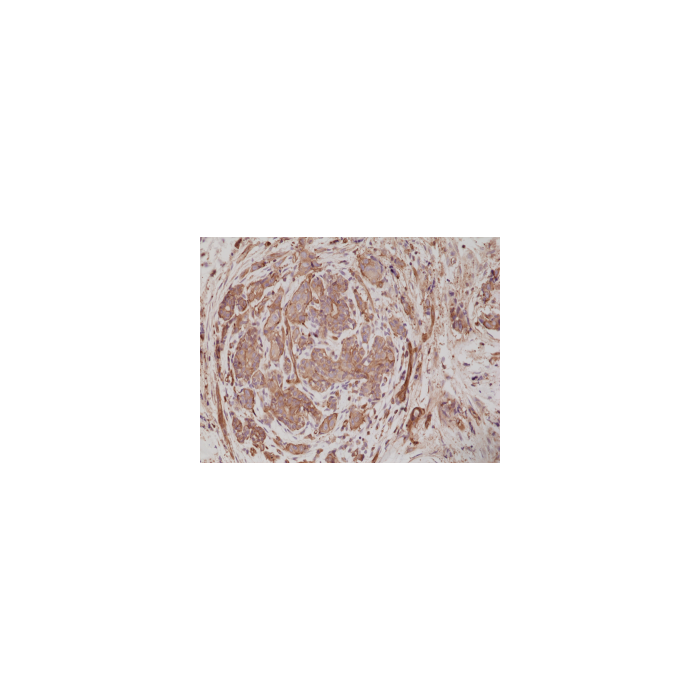Cookie Policy: This site uses cookies to improve your experience. You can find out more about our use of cookies in our Privacy Policy. By continuing to browse this site you agree to our use of cookies.
RevMab
anti-Alpha Actinin-4 (human), Rabbit Monoclonal (RM287)

| Product Details | |
|---|---|
| Synonyms | Non-muscle alpha-Actinin 4 |
| Product Type | Recombinant Antibody |
| Properties | |
| Clone | RM287 |
| Isotype | Rabbit IgG |
| Source/Host | Rabbit |
| Immunogen/Antigen | A peptide corresponding to the N-terminus of human alpha-Actinin-4 . |
| Application |
Immunohistochemistry (IHC): 1:100-1:200 dilution |
| Crossreactivity | Human |
| Specificity |
This antibody reacts to human alpha-Actinin-4. |
| Purity | Protein A purified. |
| Purity Detail | Protein A affinity purified from an animal origin-free culture supernatant. |
| Concentration | N/A |
| Formulation | Liquid. 50% Glycerol/PBS with 1% BSA and 0.09% sodium azide. |
| Isotype Negative Control | |
| Other Product Data |
Click here for Original Manufacturer Product Datasheet |
| Accession Number | O43707 |
| Declaration | Manufactured by RevMab Biosciences. |
| Shipping and Handling | |
| Shipping | BLUE ICE |
| Long Term Storage | -20°C |
| Handling Advice | Avoid freeze/thaw cycles. |
| Use/Stability | Stable for at least 1 year after receipt when stored at -20°C. |
| Documents | |
| Product Specification Sheet | |
| Datasheet |
 Download PDF Download PDF |
α-Actinin 4 is an actin-bundling protein of ~100kDa that is associated with cell motility, endocytosis and cancer invasion. The α-actinin family comprises two non-muscle isoforms (α-actinin-1 and -4) and two skeletal muscle isoforms (α-actinin-2 and -3), with α-actinin-2 being also expressed in cardiac muscle. While α-actinin-4 is almost ubiquitously expressed, particularly high concentrations are found in glomeruli. On the subcellular level it is associated with actin stress fibers, but in certain cells it also localizes to the nucleus. Mutations in the α-actinin-4 gene cause an autosomal-dominant form of familial focal segmental glomerulosclerosis (FSGS), which is thought to result from a defect in glomerular podocyte function. A point mutation in the α-actinin-4 gene was found to generate an antigenic peptide that is recognized by autologous cytolytic T lymphocytes (CTL) on a human lung carcinoma. α-Actinin-4 interacts with a variety of proteins, including the ring finger protein BERP, the PDZ-LIM protein CLP-36, the hemidesmosomal and cell-cell contact protein BP180, and the tight junction protein MAGI-1. Moreover, α-actinin-4 forms a ternary complex with Ca2+/Calmodulin-dependent protein kinase II and densin-180, a protein of postsynaptic densities in CNS neurons. Ca2+-dependent association of α-actinin-4 with E3KARP is required for Ca2+-dependent inhibition of the Na+/H+ exchanger 3 (NHE3).





